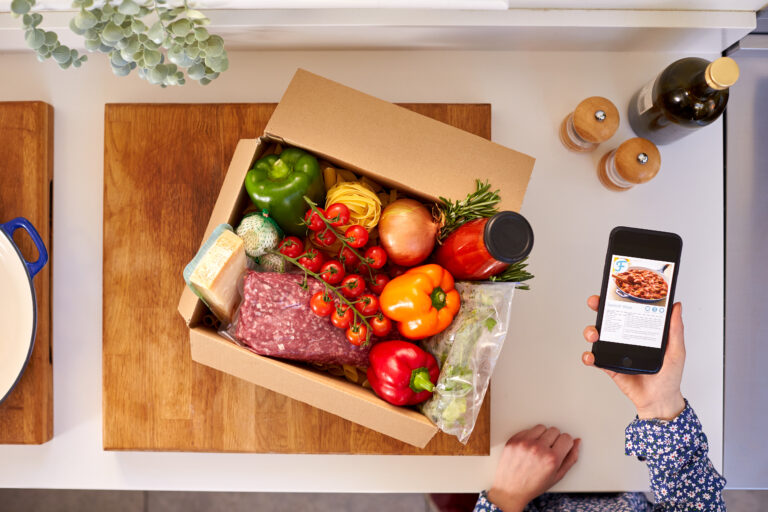In the five-year span between 2019 and 2023, the U.S. meal kit delivery market grew at a compound annual growth rate of 20.1%, with 7% of that growth occurring in 2023 alone. However, that $8 billion+ worth of meal kits is being delivered direct to consumers with different food safety regulatory oversight than consumers may expect.
Meal kits are pre-portioned/partially prepared meal ingredients and recipes that are shipped from a fulfillment center and delivered directly to a consumer. These fulfillment centers are not typically under the jurisdiction of the FDA because retail establishments are exempt from FDA registration, with the definition for retail establishment being quite broad, including “facilities that manufacture, process, pack, or hold food if the establishment’s primary function is to sell from that establishment food, including food that it manufactures, processes, packs, or holds, directly to consumers” (21 CFR 1.226-227). The Code also defines retail food establishments as having the primary function of selling food directly to consumers with the annual monetary value of sales of food products directly to consumers exceeding that of food products to all other buyers.
Thus, the burden of inspection and enforcement typically falls to the state or local jurisdiction. In some cases, inspectors may apply a type of manufactured food type mechanism, but in other situations, they may inspect pursuant to the retail food code, which doesn’t necessarily provide the same rigor as is required in a facility that is subject to FSMA and the Preventive Controls Rule. The difference in regulatory oversight and potential lack of FDA registration also can impact the ability to trace and recover product should an e-commerce product, or any of its ingredients, be implicated in a foodborne illness outbreak. This is because state and local jurisdictions do not have the resources and insight of the FDA for the investigation of a foodborne illness or contamination event with a nationwide scope.
Furthermore, in nearly all cases, the meal kits are transported by standard shippers (e.g., FedEx, UPS, DHL, USPS, etc.) which are not regulated as food distributors by the FDA, and thus are not subject to the rules of FSMA, including the Sanitary Transport requirements for temperature controls, food safety training, traceability, etc. Leaving the responsibility solely on the fulfillment center to ensure that the meal kits are packed with enough ice packs and insulation to maintain proper temperatures throughout transit and delivery.
Although FDA’s 2020 New Era of Smarter Food Safety Core Element 3 was intended to address new business models including “the evolution of how food gets from farm to table continues with the emergence of e-commerce and new delivery models,” and the agency held a summit in 2021 to gain insights into the segment, no further movement has been evident on closing the food safety gaps of e-commerce.
The potential for food poisoning from e-commerce foods is not an issue that should be taken lightly. In fact, a North Carolina State Extension study found that more than 75% (55 of 72) of boxes of home-delivered meal kits, RTE meals, or perishable foods shipped via standard shippers had at least one product over temperature at the time of opening. Those with transit times of 40 hours or more had the highest average box temperatures. And there have likely been more outbreaks than have been reported or investigated because the customers of a specific kit can spread across numerous states, and an investigation is not necessarily activated if only a few people in a region are affected.
While we would have expected FDA to be more proactive in addressing the e-commerce food safety gap given the interstate implications of e-commerce and direct-to-consumer business models that have proliferated, that does not seem to be the case. At one point, FDA did call out Amazon for not registering all its distribution centers that handle food, but the matter seems to have been dropped when Amazon disputed the requirement, stating that it is a retailer so it’s not subject to FDA regulations. Some meal-kit companies do register with the FDA, but it seems to be more of a voluntary registration due to the wording of the regulation.
The lack of specific regulation, however, will not exempt an e-commerce or meal-kit business from liability if a foodborne illness, or worse – a death, results from consumption of their product. And while traceability can be more complex for direct to consumer products, if FDA does get involved, the agency’s regular use of WGS can link illnesses across regions and time and back to pathogens found in a facility.
So, while there may be a gap in regulatory requirements for these businesses, there should not be a gap in the businesses ensuring that food safety best practices are conducted in the facility – and through to the consumer. TAG has experience in all facets of food safety – from field through manufacturing to distribution to consumer. We can help ensure your food safety practices are the best they can be, no matter what regulations you are, or aren’t, subject to.





